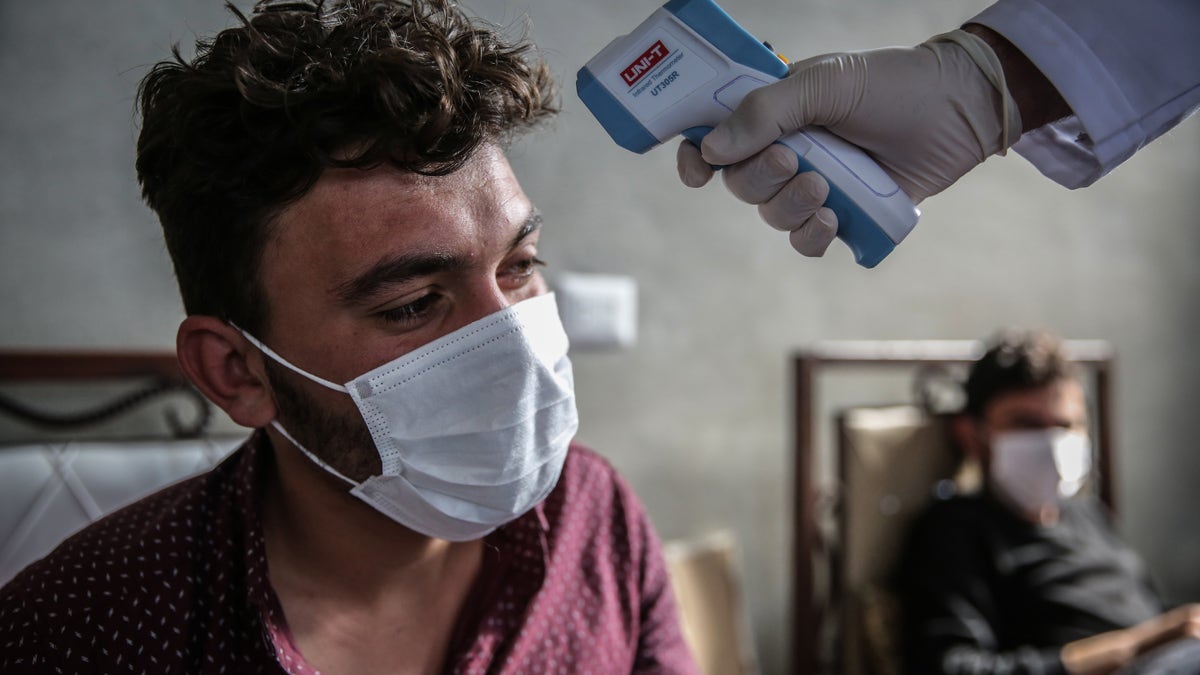Fox News Flash top headlines for May 21
Fox News Flash top headlines are here. Check out what's clicking on Foxnews.com.
Get all the latest news on coronavirus and more delivered daily to your inbox. Sign up here.
There are significant gaps in COVID-19 testing capability in war-torn parts of the world, raising the chance of new, undetected outbreaks of the coronavirus.
Data compiled by the International Rescue Committee (IRC) reveals some of the lowest numbers of tests per million in the following countries: Yemen (31 tests per million), Chad (105 tests per million), Nigeria (165 tests per million), Mali (173 tests per million). The area of Northeast Syria is also of concern, with 59 tests per million.
The IRC says this suggests significant under-detection of infections in those states, which is therefore preventing public health workers from doing the necessary contact tracing, isolation and treatment of cases to control the spread of COVID-19.
FRANCE SHOULD SELL MONA LISA TO COVER CORONAVIRUS PANDEMIC COSTS, TECH CEO SAYS

A medic checks the temperature of a man inside a health isolation centre which has been established on the Syrian-Turkish borders in order to place people coming from Turkey to Idlib as a preventive measure against the spread of the coronavirus disease (COVID-19). (Photo by Anas Alkharboutli/picture alliance via Getty Images)
“These startling figures speak to the dangerous prospect of undetected and potentially uncontrolled outbreaks in crisis and conflict-affected states. Rapid detection is essential for rapid response, and rapid response saves lives. COVID-19 has already brought the strongest health systems in the world to their knees - and we are now seeing virus hotspots growing in parts of Africa, Asia, the Middle East and Latin America," said David Miliband, president and CEO of the International Rescue Committee, in a statement provided to Fox News.
The IRC notes that the U.S., which infectious disease experts say is still not testing enough people relative to its large population, has carried out a total of 38,394 tests per million people, according to the World Health Organization. Still a much higher figure than in the conflict zones.
NEARLY HALF OF ACCOUNTS TWEETING ABOUT CORONAVIRUS ARE BOTS, RESEARCHERS SAY
“As part of a comprehensive and context-appropriate humanitarian response, testing and diagnostic services for COVID-19 must be available to all refugees and vulnerable groups in humanitarian settings," Miliband said.
The IRC has warned about the particular vulnerability of people in war-torn areas and of refugees amid the pandemic.
“Without a truly global response, any effort, however extraordinary, to contain the virus nationally will be hampered by its spread and persistence internationally. As the administration and U.S. Congress consider the next round of supplemental funding for COVID-19, an additional $12 billion is needed for the international response. Urgent action is needed now to both secure additional resources and ensure that those resources reach frontline responses like the IRC’s. We are in a race against time," he said.
As of Thursday evening, more than 5 million were infected and at least 329,816 had died worldwide from the new coronavirus.

